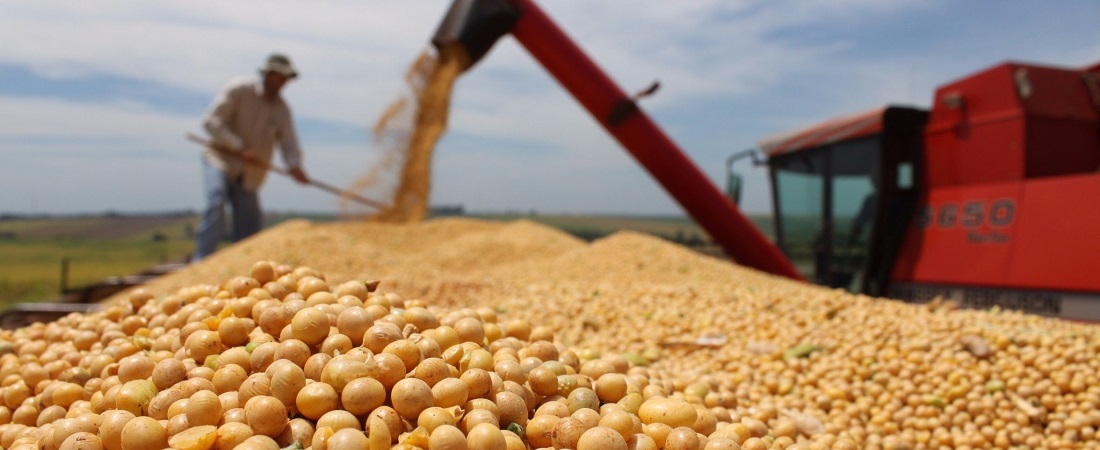
Paranaguá Port Rejects 2,700-Tonne Soybean Meal Shipment Over Contamination Concerns
Feb, 17, 2025 Posted by Gabriel MalheirosWeek 202508
A 2,700-tonne shipment of soybean meal, valued at approximately R$6 million, was rejected at the Port of Paranaguá, Paraná state, after inspectors detected the presence of sand in the cargo. The batch, owned by the company Queiroz Agro from Alto Araguaia, was dumped at the Eco-Technological Industrial Complex (CIETec) landfill in the Alexandra district of Paranaguá.
Inspection Flags Irregularities
The shipment was deemed unfit for export during an audit conducted on January 22 by the Paraná Institute for Rural Development (IDR-PR) as part of standard inspection protocols. The analysis found that the soybean meal failed to meet the minimum quality standards set by Brazil’s Ministry of Agriculture and Livestock (Mapa) for export.
As a result, the cargo was sent to the CIETec landfill for disposal. The operation required 34 trucks. According to Rogério Francisco Gonçalves, a partner at the landfill, 11 of them had already undergone the process by January 29.
Beyond the company’s financial loss, the rejected shipment also impacted truck drivers. They were forced to remain at the port’s staging area longer than expected, leading to logistical setbacks and additional costs.
Queiroz Agro Denies Product Tampering
Queiroz Agro, which specializes in trading grains, fertilizers, and farming inputs, defended the quality of its shipments in an official statement. The company asserted that its cargo complies with Anec 71, a technical regulation governing soybean meal exports, which allows for sand and silica content between 0.5% and 1.5%, depending on contractual agreements.
The company also highlighted that all transportation trucks are equipped with GPS tracking, which it claims eliminates the possibility of product tampering during transit. In its press release, Queiroz Agro dismissed allegations of fraud as “completely unfounded,” emphasizing its commitment to “transparency, ethics, and respect” in business dealings.
“We do not condone or engage in any illicit practices and are taking all necessary steps to clarify the situation with the relevant authorities,” the company stated.
Part of Grupo Queiroz, Queiroz Agro operates in the agricultural commodities sector, supplying products across the state of Mato Grosso and delivering goods to both domestic and export markets through Brazil’s main ports.
Industry Concerns and Market Impact
The incident has reignited discussions on quality control and regulatory oversight for farming exports. As one of Brazil’s key export hubs for soybeans and derivatives, the Port of Paranaguá plays a vital role in global trade, and cases like this could affect the reputation of Brazilian soybean products in international markets.
The controversy also underscores the importance of rigorous monitoring throughout the supply chain—from grain origination to port arrival—to prevent fraud and ensure compliance with export standards.
Official Statement from Queiroz Agro
“In response to multiple reports circulating across various media outlets regarding the rejected soybean meal shipments at the Port of Paranaguá, we categorically state that these claims are entirely unfounded.
Queiroz Agro upholds transparency, ethics, and respect in all dealings with clients, partners, suppliers, and employees. We reaffirm that our products meet the quality standards outlined in Anec 71 for agricultural exports and hold GMP+ certification.
Furthermore, we do not condone or engage in any illicit practices and are actively working with the relevant authorities to clarify the situation.”
Source: Compre Rural
-
Ports and Terminals
Mar, 31, 2021
0
Cabedelo carries out pioneering petroleum coke export operation
-
Fruit
Apr, 12, 2019
0
Orange juice exports from Brazil fall 13% in 2018/19 season
-
Trade Regulations
Oct, 27, 2021
0
32.4% of all Brazilian agribusiness exports went to China in September
-
Grains
Apr, 09, 2025
0
Rice Prices in Brazil Fall Below Export Parity in March

